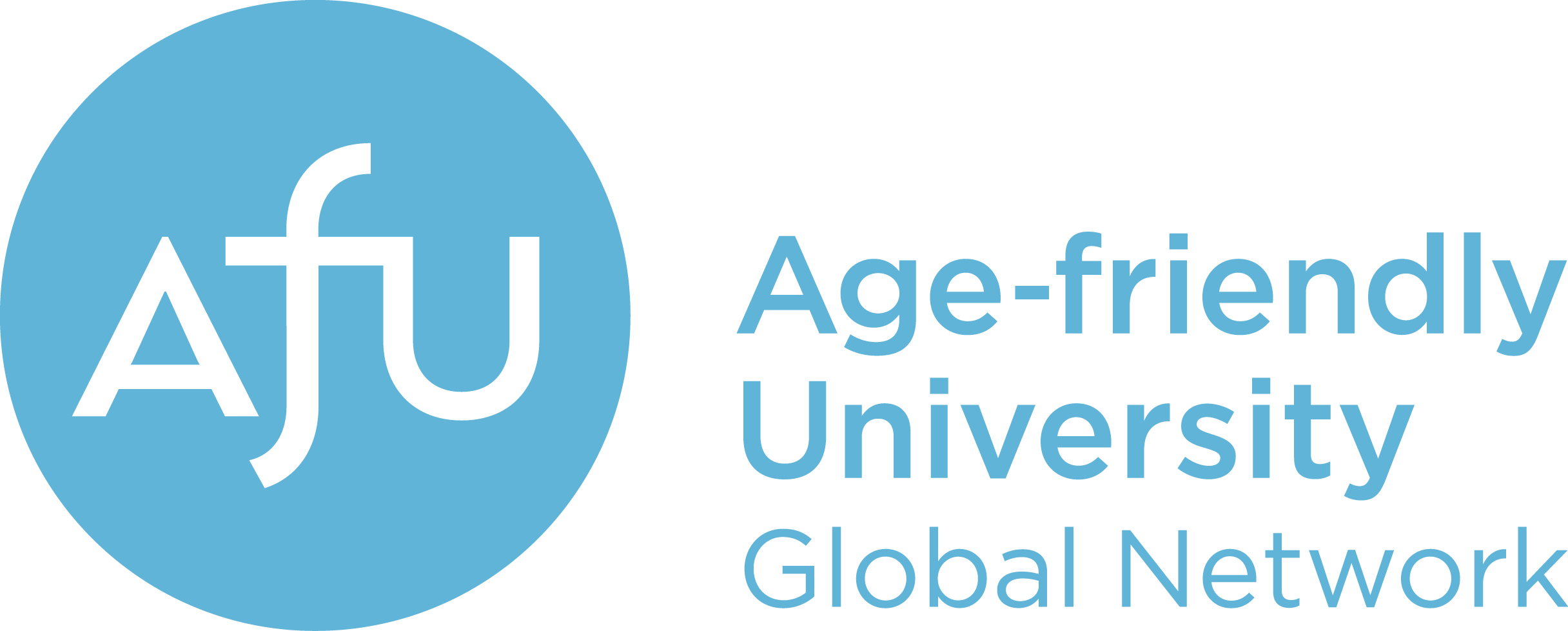Return to Age-friendly University Initiative
Age-inclusion at VCU

VCU demonstrates a commitment to the AFU principles through education, service, community engagement, outreach and research. Below are highlights of VCU initiatives that exemplify the AFU principles.
Support Services
VCU Retired Faculty Council provides a means for retired faculty to stay in touch with the university and to remain involved with university affairs. It serves as a way of gathering and disseminating information of interest to those that have retired from VCU and bring together colleagues for stimulating events.
VCU Alumni Office champions inclusivity as one of their core values. Development and Alumni Relations has been working since 2019 to become more inclusive and learn how to work with those who differ from themselves. DAR staff completed a 6-part series on the fundamentals of diversity and inclusion in spring 2021 and now DAR, in partnership with iExcel, offers a more targeted D&I education series.
Training and Support
IExcel Education offers non-credit pop-up courses to VCU students which often involve real-life experience and take place off-campus in locations relevant to course content. Several courses bring students to elder housing communities where they can interact directly with residents, such as Dominion Place and the VCU Health Hub at 25th.
IExcel training programs for faculty and staff target problem areas within academic and administrative units. Training provides focused interventions and involves interactive activities in full-day and half-day formats. The Creating an Age Inclusive Academic Workplace training program approaches the intertwined topics of ageism, adultism and ableism from the perspective of the intersectional self to strengthen age allyship in the workplace and to create a more just society.
IExcel’s RAMmalogues provides a braver/safer space for students, faculty and staff to have the hard conversations about their social identities and lived experiences at VCU. RAMmalogues provides opportunities for people at VCU to understand more about how they and others are being affected, particularly in the context of racism and the pandemic which exacerbated existing inequities against older adults and especially people of color.
Education
The Virginia Center on Aging (VCoA) is a statewide agency created by the Virginia General Assembly in 1978 that was created to be an interdisciplinary study, research, information and resource facility for the Commonwealth of Virginia using the full capabilities of faculty, staff, libraries, laboratories and clinics at VCU for the benefit of older Virginians and the expansion of knowledge pertaining to the aged and the aging. Among the projects and programs supported by VCoA are:
- The Alzheimer’s and Related Disease Award Fund (ARDRAF) gives awards annually to scientists in Virginia in order to support research into the causes of Alzheimer's disease and related disorders, methods of treatment, ways that families can cope with the stresses of the disease, and the impact of the disease on the citizens of the Commonwealth.
- The Geriatric Training and Education (GTE) program, Virginia’s only state-funded source of training monies for developing the critical geriatric workforce, from nurse aides to practicing professionals across various disciplines.
- The Lifelong Learning Institute of Chesterfield, a member-supported organization designed to meet the educational and social enrichment needs of adults aged 50 and "better."
- The Abuse in Later Life Program which addresses the issue of abuse of adults 50 and older by bringing together professionals from such diverse fields as law enforcement, victim advocacy, social services, the faith community, criminal justice, housing, healthcare, aging services, and more.
- The Virginia Geriatric Education Center (VGEC) whose mission is to improve the interprofessional education and training of health professionals in Virginia through faculty development, continuing education, and the clinical training of students in geriatrics.
VCU Department of Gerontology, founded in 1976, is well-known for the quality and innovation of its programs and for the scholarship and applied expertise of its faculty. The Department of Gerontology offers a variety of degree programs based on an interdisciplinary approach using the bio-psycho-social model. With a mission of promoting optimal aging for individuals and communities, Gerontology graduates further the person-centered mission of the department largely in the areas of administration, education, advocacy, and entrepreneurship.
VCU Service-Learning Program supports the intentional engagement of students in organized service activities and guided reflection. It is a course-based, credit-bearing educational experience in which students help meet community-identified needs. Since 2016, 29 unique service-learning courses, taught by 22 different faculty members focused explicitly on aging and older adult populations. This includes courses in arts education, graphic design, family medicine, psychology, gender studies, religious studies, mass communications, family and community health nursing, health and behavior policy, music, sociology, social work, focused inquiry, the Honors College, and the Center for Interprofessional Education and Collaborative Care.
VCU Senior Citizens Higher Education Program provides older adults (aged 60 or older) the opportunity to qualify to take courses without paying tuition or mandatory fees, under certain conditions. Older adults with a taxable income of $23,850 or less for the year preceding enrollment may take courses for academic credit. Older adults with a taxable income exceeding $23,850 can audit courses under the tuition-free policy. Older adults can take up to three non-credit courses per semester and there are no restrictions on the number of courses qualified older adults may take for credit. The senior citizen’s higher education program provides an opportunity for older adult learners to partake in classes to enrich their personal and/or professional development.